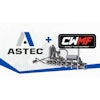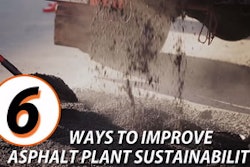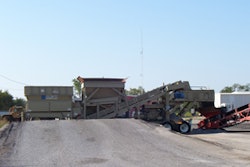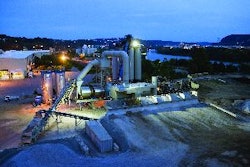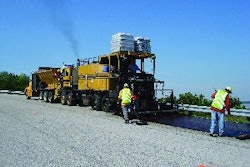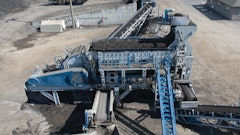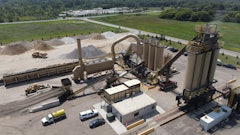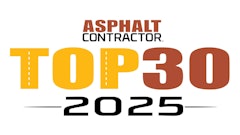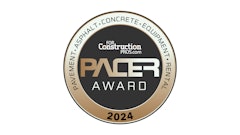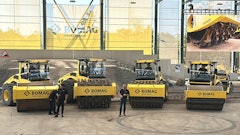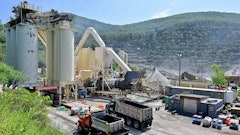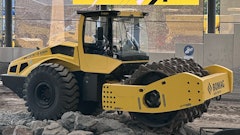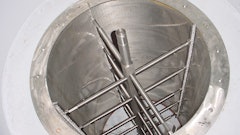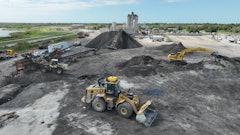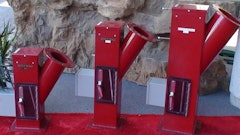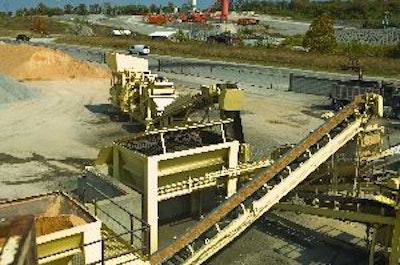
For over 30 years, Lebanon, TN-based LoJac Enterprises has built a strong reputation as an innovative leader in the construction industry. With experience in grading, storm drainage, utilities, base stone construction, and asphalt production and construction, LoJac is well-equipped to handle the broad gamut of construction disciplines required in site development and road and surface construction projects.
LoJac operates 12 asphalt plants throughout Middle Tennessee and produces well over a million tons of asphalt annually for both government agencies and private commercial customers.
So it should come as no surprise that this innovative asphalt producer/contractor has taken another step forward by providing customers a green, more sustainable, and more economical solution to their asphalt needs by converting six of its 12 production facilities with Double Barrel Green WMA technology.
?It?s a win-win-win for us, our customers and the industry,? states Don Chambers, president of LoJac Enterprises. ?Warm mix technology allows us to take a more sustainable approach in recycling valuable resources, lowering our production costs, and helping our customers maximize their investment dollars.?
WMA technology
As described in the National Asphalt Pavement Association?s Warm-Mix Asphalt: Best Practices publication, the Double Barrel Green WMA system, manufactured by Astec Industries, uses a multi-nozzle foaming device to microscopically foam the asphalt. This device includes a manifold with a system of valves, mixing chambers and nozzles.
The entire system is surrounded by a circulation hot oil jacket. The nozzles inject water into a mixing chamber. Each nozzle can be computer controlled, increasing or decreasing the number of nozzles needed based on the production rate.
The water being supplied to the system is regulated by a positive displacement pump and meter whose speed varies based on the speed of the asphalt pump. One pound of water is added per ton of mix. A small percentage of this water is encapsulated in the binder as steam, increasing the vender volume.
The resultant production temperatures are typically 250 to 275 degrees F, with compaction temperatures as low as approximately 220 degrees F.
The Double Barrel Green system is an option that can be included with a new Astec Double Barrel drum mixer/dryer or added as a retrofit. Since the system achieves the foaming action by adding water and not a chemical additive, it gives asphalt producers the capability to produce warm mix without the added costs of additives. Other benefits of the warm-mix system include:
- No smoke and no smell because the light oils in liquid asphalt never reach the boiling point.
- The ability to run high percentages of reclaimed asphalt pavement with a standard grade of asphalt.
- Due to the 50 degrees F lower production temperature, approximately 14 percent less fuel is used as compared to producing hot mix.
The warm-mix road
While warm mix has been around for over 10 years, originating in Europe, the technology has only started to gain interest in the United States over the past couple of years as state DOTs conduct test projects. LoJac conducted its first warm mix demonstration in 2004 at the World of Asphalt in Nashville.
While LoJac has been selling warm mix to commercial customers for some time, it received its first public road warm mix contract in 2007, when it partnered with the Tennessee Department of Transportation to place 12,000 tons of WMA on Old Hillsboro Road in Williamson County. State engineers wanted to see how the mix would hold up to traffic and weather conditions.
Test results from the Hillsboro Road project apparently satisfied TDOT officials as they decided to continue exploring the warm mix technology this year by awarding LoJac a Hwy. 266 project.
The $1-million project called for placing 14,000 tons of WMA overlay on a five-mile stretch of roadway that serves a regional landfill. The DOT wanted to see how the mix will hold up under the daily pounding of heavy truck traffic.
?This project represents an ongoing partnership with TDOT,? Chambers says. ?We?re trying to get them to write some new specs for increasing the amount of RAP (reclaimed asphalt pavement) allowed in state projects.?
Currently, Tennessee limits RAP content to 30 percent in binder mixes and 10 percent in surface mixes.
?Tennessee is looking at ways to cut the overall cost of paving and they asked us and we told them RAP is a viable solution,? Chambers adds. ?On the Hwy. 266 project we took a value engineering approach in showing TDOT how to save money. We told them a high-RAP warm-mix design could save $7 per ton and we were willing to split that savings with them.
?We were able to write a contract without an escalation clause to cover the rising cost of liquid AC binder because we knew we would use less binder by increasing the RAP content of the mixes required for the project,? he adds.
The 14,000-ton project represented a $98,000 savings by going with a high-RAP WMA design. LoJac placed a 2 1/4-inch-modified binder course containing 50-percent RAP followed by a 1 1/4-inch surface course containing 30-percent RAP. The mix was produced at the company?s Lebanon facility using a portable screen to fractionate (separate) the RAP into -5/16 and -3/4 inch aggregate for use in the binder, and -5/16 and -1/2 inch aggregate for use in the surface mix. Fractionating RAP allows it to be handled like virgin aggregate when it is blended back into the new mix. The plant was also retrofitted with an Astec Green Double Barrel system to foam the warm mix.
?The warm-mix technology enables us to increase the RAP percentage because of the lower temperature required in the foaming process,? Chambers notes. ?When adding RAP in a hot mix design the aggregate is heated at a much higher temperature to ensure adequate coating of the AC. The higher temperature tends to overcook the RAP, which releases more blue smoke. But with the warm-mix technology, the foaming process expands the (liquid) asphalt and allows you to achieve adequate coating of the rock at a much lower temperature.?
The ability to produce mix at 250 to 275 degrees F versus 325 to 350 degrees F also provides a much better working environment for plant and paving personnel.
?We know the air quality is better at both the plant and the paver, and that?s not only good for the environment, but also good for our employees,? Chambers states. ?And besides the health benefits for our employees, we know we?ll save between 12 and 14 percent in fuel costs to produce warm mix versus hot mix, and we?ve been able to eliminate a roller when placing warm mix because we can achieve compaction a lot faster.?
For TDOT, writing new specs to increase RAP in WMA designs represents a significant savings. According to Chambers, TDOT placed approximately 2 million tons of asphalt in 2007. New mix design specs that allow high-RAP warm mix to be used represent millions of dollars in savings.
So you can see why Don Chambers sees high-RAP warm mixes as a ?win-win-win? proposition for LoJac, its customers and the industry in general
?Sustainability is the key to addressing the infrastructure needs of this country,? says Chambers, who wants to see the industry become a leader in the ?green? effort in using sustainable materials and practices. ?High-RAP WMA saves energy, rock and AC. It?s good for the environment, for our workers, for our customers and for our industry. It just makes sense.?


